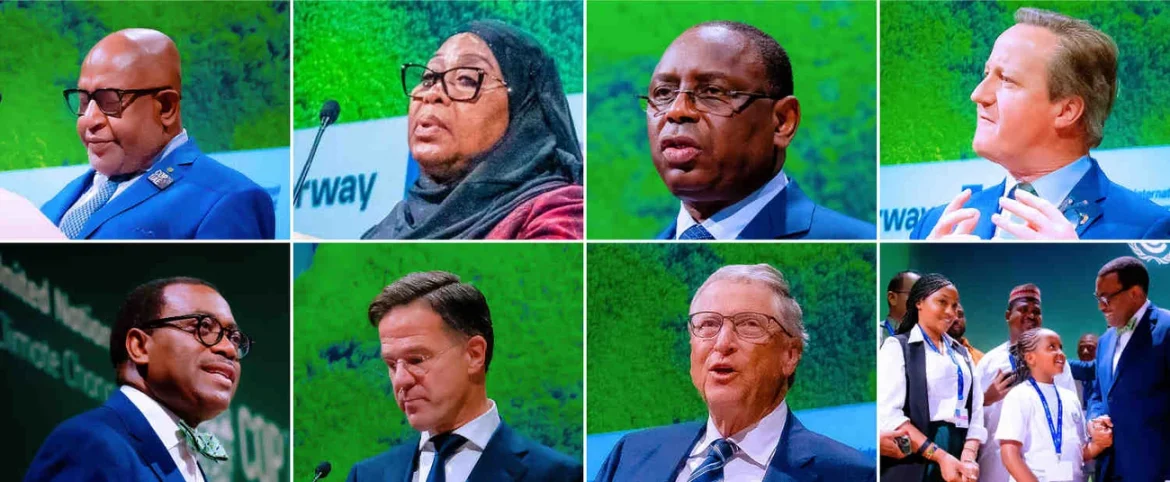African leaders attending this year’s global climate change conference in Dubai are demanding a more global response to the continent’s adaptation financing needs to tackle the impact of climate change and build resilience.
Speaking during the Adaptation Finance Summit for Africa on the second day of the COP28, the leaders said that climate adaptation funding, currently at 39% of all climate finance flows to Africa, must rapidly increase.
The high-level session included Comoros President and African Union Chairman Azali Assoumani, Tanzanian President Samia Suluhu Hassan, Senegalese President Macky Sall, Dutch Prime Minister Mark Rutte, UK Foreign Secretary David Cameron, African Development Bank Group President Dr Akinwumi Adesina, and philanthropist Bill Gates.
In his address, the President of the African Development Bank Group, Dr Akinwumi Adesina, highlighted initiatives by the institution in response to the climate adaptation needs of Africa, including the launch of a Climate Action Window to mobilise up to $14 billion to support adaptation for 37 low-income countries.
“I am pleased to announce here today that the operationalisation of the Climate Action Window starts right here, at this COP, as we launch the first Call for Proposals this week,” said Dr Adesina.
He called on donors and investors to join the Climate Action Window to deliver climate-resilient agricultural technologies for 20 million farmers; deliver weather insurance for 20 million farmers; rehabilitate one million hectares of degraded lands; provide water, sanitation and health services to 18 million people, and renewable energy for close to 10 million people.
Read also: Sunak accused of sending wrong signals on climate crisis
On her part, president Samia Hassan of Tanzania announced that the Global Center for Adaptation would formalise partnerships under the African Adaptation Acceleration Program (AAA-P) to provide technical support to mobilise $700 million green bonds issued by two Tanzanian commercial banks to finance climate adaptation.
“In Tanzania we are showing the way on how to generate funds for adaptation and mitigation,” she told the session which was moderated by Patrick Verkooijen, CEO of the Global Center for Adaptation.
President Macky Sall of Senegal also proposed the exploration by the International Monetary Fund and other partners to finance green projects, including adaptation, with resources initially earmarked for debt repayments.
“Africa remains behind in the adaptation process because it benefits very little from concessional financing and green investments,” he said. “As a result, African countries are going into heavy debt to finance their green projects, which constitutes a double punishment for the continent that pollutes the least. Africa is not asking for a special favour but a fair and equitable approach to the fight against global warming.”
The UK Foreign Secretary David Cameron injected a sense of urgency: “In Africa today, it’s not about what might be necessary in the future; it’s about what is necessary now. Crops are failing now; soil is being ruined now, populations are moving now, farmers are struggling now, water is short now. That’s why adaptation is so essential.”
He said that Britain’s spending on adaptation in Africa would reach GBP1.5 billion ($1.89 billion) by 2025—money that will go into vital schemes such as weather forecasting for farmers. He said to scale up further, governments of wealthy nations must work with multilateral development banks to put enough cash on the table.
Recall that to help bridge the financing gap, the continent launched in 2021 the world’s largest adaptation program, the $25 billion Africa Adaptation Acceleration Program. It is led by the African Development Bank Group, the African Union Commission, and the Global Center on Adaptation, to actualise the vision of the Africa Adaptation Initiative.
Story was adapted from AFDB.
